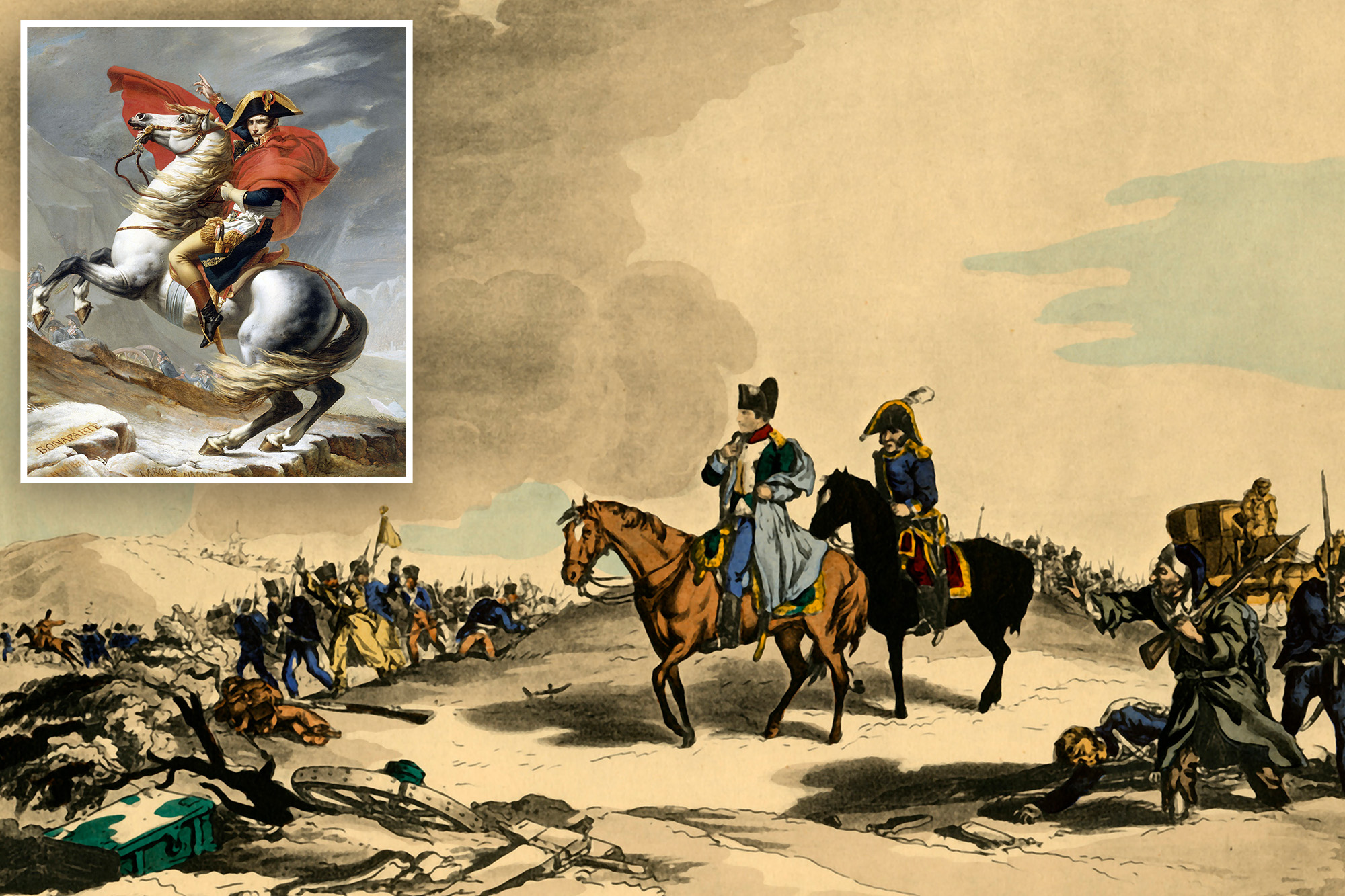Lifestyle
Scientists Uncover Bacteria Linked to Napoleon’s 1812 Retreat

Researchers have identified traces of deadly bacteria that afflicted Napoleon Bonaparte’s army during the catastrophic retreat from Russia in 1812. This discovery sheds new light on the factors contributing to the downfall of the French general, who faced immense challenges during the campaign.
A study published in the journal Current Biology on November 3, 2023, examined DNA extracted from the teeth of French soldiers interred in a mass grave located in Vilnius, Lithuania. These soldiers were part of the approximately 300,000 members of the Grande Armée who perished during Napoleon’s ill-fated invasion of Russia.
The analysis revealed the presence of bacteria responsible for paratyphoid fever and louse-borne relapsing fever. According to the researchers, these infections circulated among the troops, who were already weakened by starvation and exposure to extreme cold. Despite the long-acknowledged harsh conditions leading to the soldiers’ deaths, such as malnutrition and the freezing climate, these specific pathogens had not been documented previously among Napoleon’s forces.
After entering Moscow, Napoleon’s campaign rapidly deteriorated. The French emperor was compelled to retreat amidst fierce counterattacks and dwindling resources. Study author Nicolás Rascovan commented that Vilnius served as a crucial stop during the retreat. The mass grave in question is estimated to contain the remains of up to 3,000 soldiers.
Rascovan noted that many of the soldiers who reached Vilnius were “exhausted, starving, and ill.” He stated, “A substantial number died there and were interred rapidly in mass graves.” While starvation, harsh temperatures, and diseases like typhus have long been cited as primary causes of mortality, the study clearly indicates that paratyphoid fever and louse-borne relapsing fever were also significant contributors to the soldiers’ suffering and death.
Of the thirteen soldiers tested, four were found positive for the paratyphoid fever bacterium, while two others carried the relapsing fever bacterium. Both infections cause symptoms such as fever, headache, and weakness, and can spread rapidly in crowded and unsanitary conditions. Paratyphoid fever is typically transmitted through contaminated food and water, while louse-borne relapsing fever spreads via body lice.
Rascovan emphasized the importance of studying ancient DNA, stating, “This lets us put names to infections that symptom-based accounts alone cannot resolve.” He further noted that the co-occurrence of pathogens with different transmission routes highlights the dire sanitary conditions faced by the soldiers. “Future work across more sites and individuals will refine the disease landscape of 1812,” he added.
This groundbreaking research not only enhances our understanding of the challenges faced by Napoleon’s troops but also underscores the significant role that infectious diseases played in historical military campaigns.
-

 Science2 weeks ago
Science2 weeks agoUniversity of Hawaiʻi Joins $25.6M AI Project to Monitor Disasters
-

 Business2 weeks ago
Business2 weeks agoForeign Inflows into Japan Stocks Surge to ¥1.34 Trillion
-

 Top Stories3 weeks ago
Top Stories3 weeks agoMarc Buoniconti’s Legacy: 40 Years Later, Lives Transformed
-

 Top Stories3 weeks ago
Top Stories3 weeks agoBOYNEXTDOOR’s Jaehyun Faces Backlash Amid BTS-TWICE Controversy
-

 Health3 weeks ago
Health3 weeks agoInnovative Surgery Restores Confidence for Breast Cancer Patients
-

 Sports1 month ago
Sports1 month agoSteve Kerr Supports Jonathan Kuminga After Ejection in Preseason Game
-

 Science1 month ago
Science1 month agoChicago’s Viral ‘Rat Hole’ Likely Created by Squirrel, Study Reveals
-

 Lifestyle1 month ago
Lifestyle1 month agoKelsea Ballerini Launches ‘Burn the Baggage’ Candle with Ranger Station
-

 Entertainment1 month ago
Entertainment1 month agoZoe Saldana Advocates for James Cameron’s Avatar Documentary
-

 Top Stories3 weeks ago
Top Stories3 weeks agoCarson Wentz Out for Season After Shoulder Surgery: Urgent Update
-

 Politics1 month ago
Politics1 month agoDallin H. Oaks Assumes Leadership of Latter-day Saints Church
-

 Lifestyle1 month ago
Lifestyle1 month agoDua Lipa Celebrates Passing GCSE Spanish During World Tour









